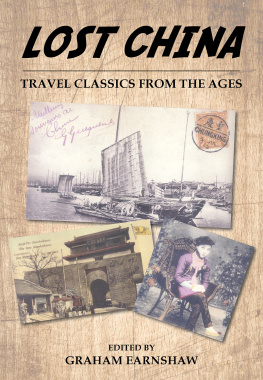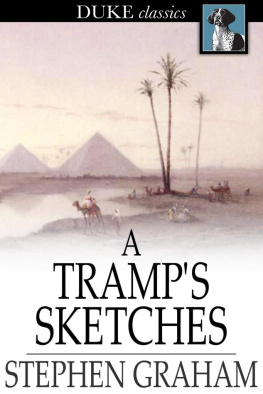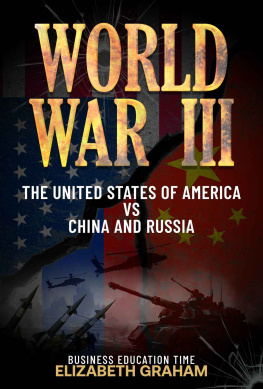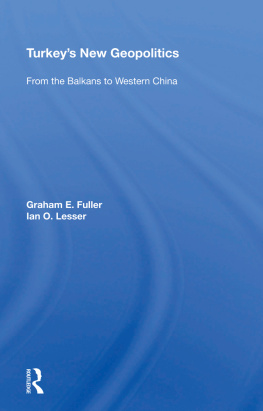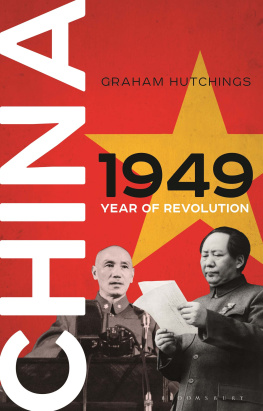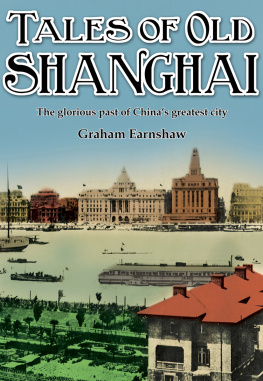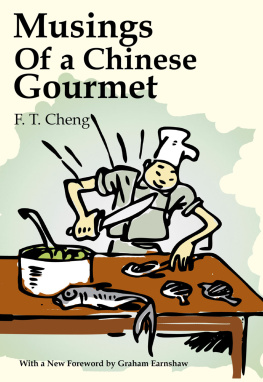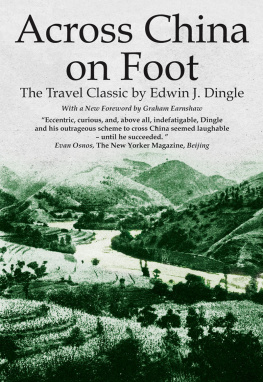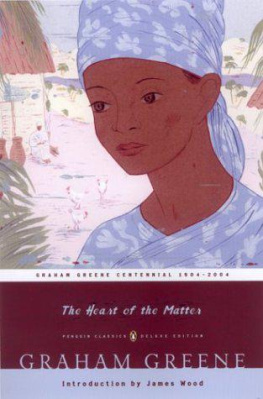Graham Earnshaw - Lost China: Travel Classics From the Ages
Here you can read online Graham Earnshaw - Lost China: Travel Classics From the Ages full text of the book (entire story) in english for free. Download pdf and epub, get meaning, cover and reviews about this ebook. year: 2018, publisher: Earnshaw Books, genre: Detective and thriller. Description of the work, (preface) as well as reviews are available. Best literature library LitArk.com created for fans of good reading and offers a wide selection of genres:
Romance novel
Science fiction
Adventure
Detective
Science
History
Home and family
Prose
Art
Politics
Computer
Non-fiction
Religion
Business
Children
Humor
Choose a favorite category and find really read worthwhile books. Enjoy immersion in the world of imagination, feel the emotions of the characters or learn something new for yourself, make an fascinating discovery.
- Book:Lost China: Travel Classics From the Ages
- Author:
- Publisher:Earnshaw Books
- Genre:
- Year:2018
- Rating:4 / 5
- Favourites:Add to favourites
- Your mark:
- 80
- 1
- 2
- 3
- 4
- 5
Lost China: Travel Classics From the Ages: summary, description and annotation
We offer to read an annotation, description, summary or preface (depends on what the author of the book "Lost China: Travel Classics From the Ages" wrote himself). If you haven't found the necessary information about the book — write in the comments, we will try to find it.
Lost China: Travel Classics From the Ages — read online for free the complete book (whole text) full work
Below is the text of the book, divided by pages. System saving the place of the last page read, allows you to conveniently read the book "Lost China: Travel Classics From the Ages" online for free, without having to search again every time where you left off. Put a bookmark, and you can go to the page where you finished reading at any time.
Font size:
Interval:
Bookmark:
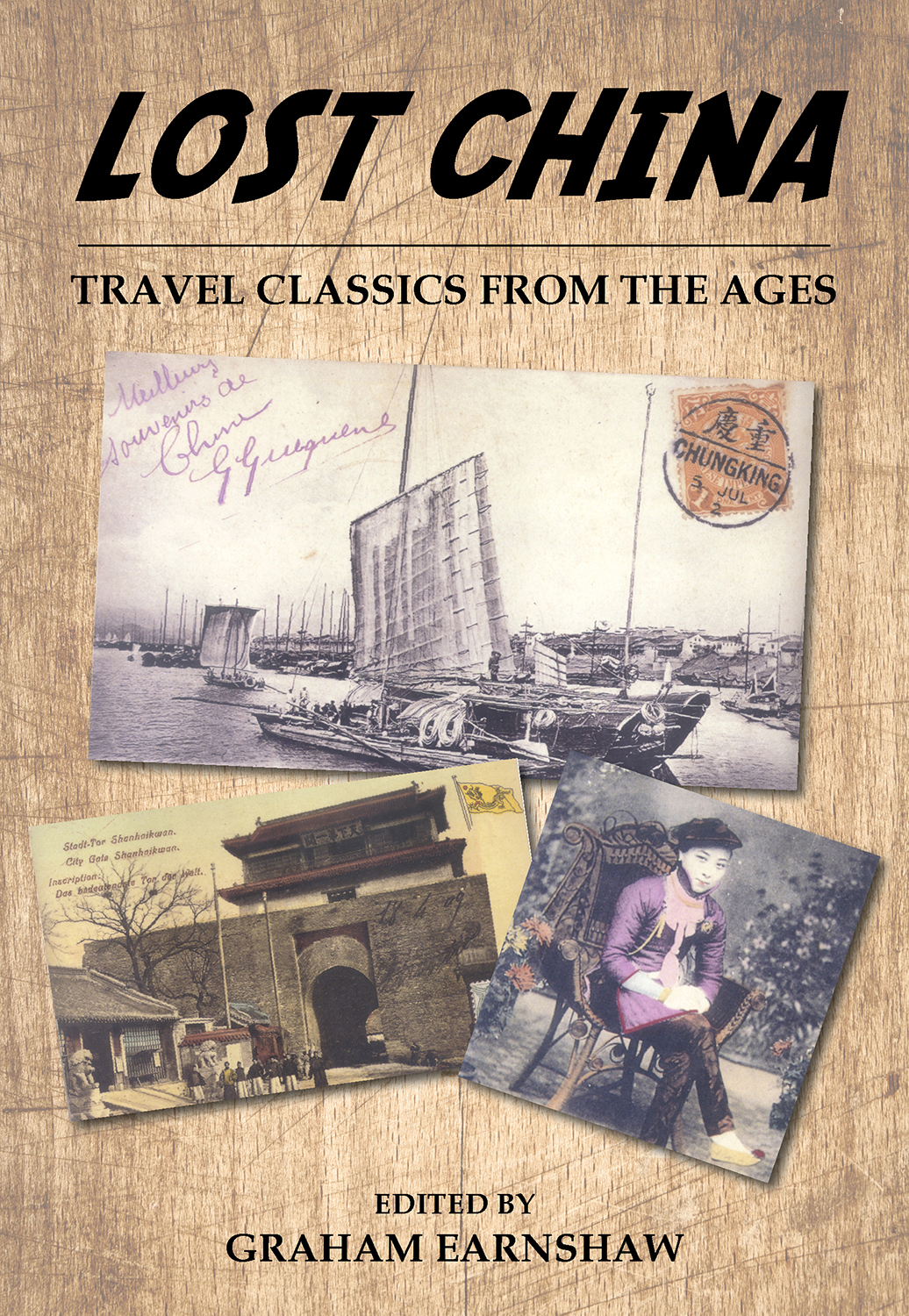
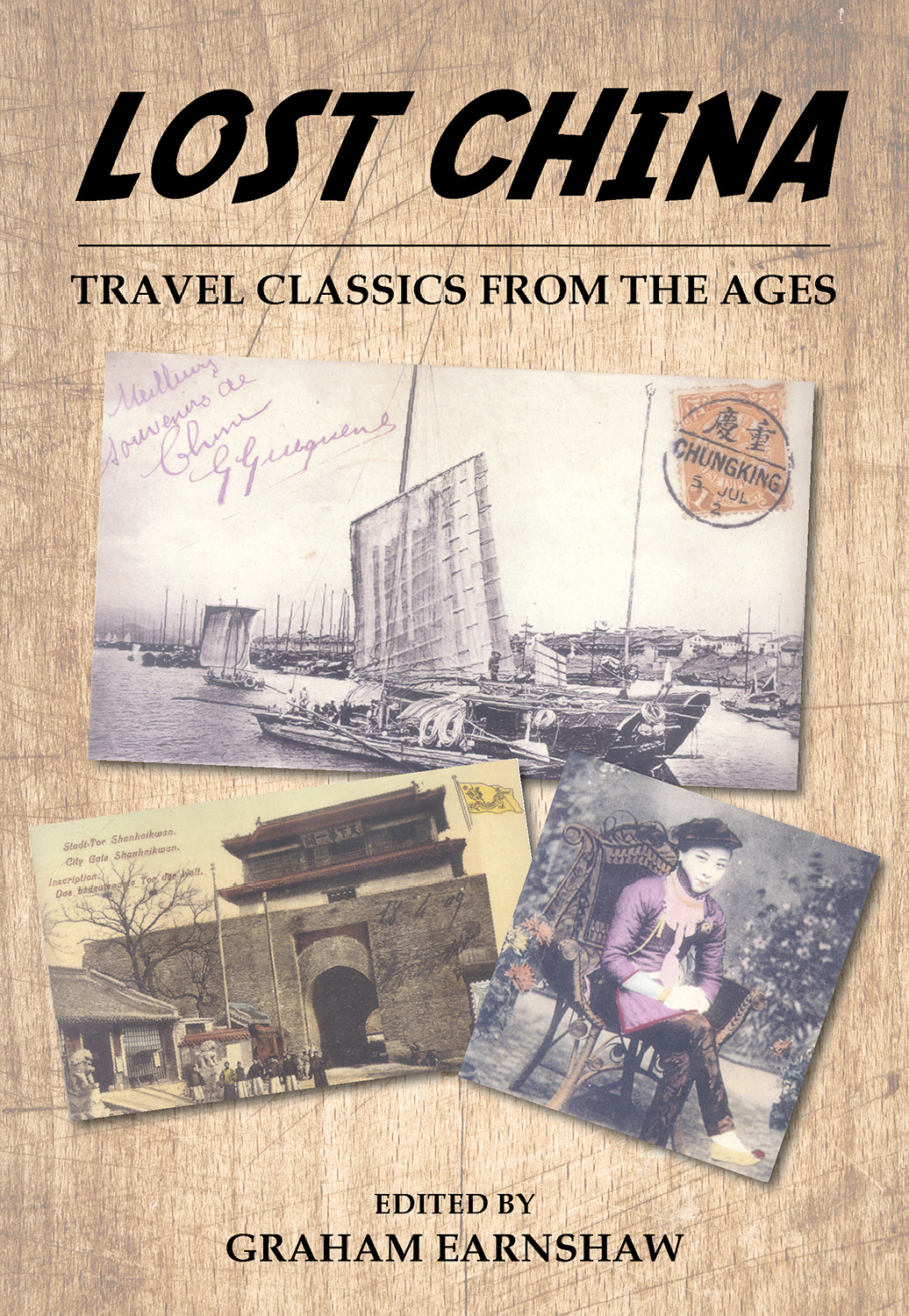

Lost China: Travel Classics from the Ages
Edited by Graham Earnshaw
ISBN-13: 978-988-8552-14-6
2018 Graham Earnshaw
HISTORY / Asia / China
EB094
All rights reserved. No part of this book may be reproduced in material form, by any means, whether graphic, electronic, mechanical or other, including photocopying or information storage, in whole or in part. May not be used to prepare other publications without written permission from the publisher except in the case of brief quotations embodied in critical articles or reviews. For information contact info@earnshawbooks.com
Published by Earnshaw Books Ltd. (Hong Kong)
Foreword
The initial reason for founding Earnshaw Books in 2004 was that I had found so many books written in the past by foreigners traveling or living in China that, while shining with vibrancy and fascinating detail, had been forgotten by the world. The aim was take some of these wonderful books off the dusty shelves and give them another run in the sun.
Earnshaw Books today mostly publishes new original books, mostly still about China, but we still do some reprints of the old classics, lovingly proofed and re-set. Some of these books, it is true, can be a bit turgid, a trifle difficult to get through for various reasons. So a few decades agosomewhere around 1982. I wrote summaries of two of my favorite China travel booksone by a French missionary surnamed Huc who traversed most of China in the 1830s, and the other by Laurence Oliphant, who witnessed the entire second Opium War in the 1850s. Both books are immensely readable, full of great descriptions and writing, and having done than, I decided to expand on the idea and commissioned other writers to take the same summary approach with some other classics of China travel. The result is this book.
Graham Earnshaw
China
2018
Aeneas Anderson
A Narrative of the British Embassy to China
Before the Macartney Embassy set off for China in 1792, European trade with China was not, in the eyes of the tea-thirsty British, a happy venture. Tariffs were high, trade was heavily restricted and any expansion of operations was near impossible. Wanting to substantially improve these conditions, King George III, with the sincerest of blessings of the East India Company, sent Lord Macartney and a sprawling retinue to China for what would become the first major Sino-European diplomatic event. (A previous attempt was cut short when Lord Cathcart, the Ambassador, died en route.)
Officially, Macartney was not going to China on business; rather, he was armed with over six-hundred cases of luxurious gifts, going the distance to extend heartfelt congratulations on the eightieth birthday of Qianlong, the Manchu Emperor. Of course, both sides were aware that the British were angling for more than a slice of birthday cake and they arrived with a carefully drawn-up list of proposals, including permission to set up a permanent legation in the closed city of Peking, possession of an island near Chusan (an island off Shanghai) for storage and shipping, and fewer restrictions on trade.
On a birthday-party level, things appeared to go smoothly: both the Emperor and the Ambassador were cordial and accommodating, offering each other with gifts and respect, and working to overcome cultural barriers that would have been insurmountable for lesser men. After delicate negotiations, an agreement was reached allowing Macartney to kneel before the Emperor (as he would for a British monarch) instead of kowtowing.
But despite the careful ballet of diplomacy, the Emperor was not remotely interested in changing Britains trading status and not one of their demands was met. The Embassy was dismissed from Peking and returned to Britain on short notice. Business-wise, the mission had been a complete failure.
Present on the this trip was Macartneys valet, Aeneas Anderson, who published his own narrative of the trip published in 1795, soon after returning to Britain, with the ghost-writing help of a top hack writer of that era, William Coombe. Peppered with gossip, gripes about the management and informed speculation about the closed-door negotiations with the Manchu officials, Andersons below stairs book is an engaging account of an historic event.
The Macartney Embassy to China set sail from Portsmouth amidst much fanfare on September 21, 1792. While their ships were some of the Empires finest and more than capable of cruising along at a fair clip, their progress was frequently interrupted by diplomatic stops en route. Not three weeks after setting out, Anderson bemoaned that they had to stop off in Madeira for over a week so that Macartney could be adequately wined and dined by local leaders. With appetites and diplomatic gestures determining the schedule, it was almost six months before they reached their major refueling point, Batavia (present day Jakarta) in the Dutch East Indies.
Anderson, charged with organizing Macartneys baggage and arranging his lodgings, settled Macartney into his Batavian accommodations and then explored the city.
He found the Dutch architecture charming, but there was little else for him to praise. The tropical swamp climate and the stinking canals cruelly taxed the health of residents, and he reported that, Not one in twenty of the military who came from Europe, ever returned there; and that even those who escape from hence and survive all the dangers and disorders of the climate, generally go back to their own country with emaciated forms and debilitated conditions.
On one morning in the city, he saw an elderly Malay staff member in the hotel nearly beaten to death for the omission of a minor duty. He brought the case to the attention of the Dutch hotel manager, who said that the Malays were so extremely wicked, that neither the house nor anyone in it would be safe for a moment if they were not kept in a state of continual terror by the most rigid and exemplary punishment.
It was in Batavia that Anderson had his first glimpse of Chinese settlements: immigrants inhabiting the artisanal and manufacturing suburbs of the city. On the one hand, he liked their industrious nature and willingness to carry out work that the Europeans through a foolish and unpardonable pride, consider[ed] as beneath them to perform, yet he found their settlements repulsive, a scattered mass of deformity and confusion, which made him rather nervous about what he might find in China.
Two months later, the Embassy stopped at a small but unnamed island off the coast of Cochin China (todays Vietnam). Isolated and impoverished, the island was in no position to wine and dine their new guests in style. Unperturbed, Macartney went ashore to bargain with the local mandarin for meat and fruit for his hungry crew. The mandarin agreed to provide rations, and Anderson in return treated the natives to a display of musket fire, blasting away most of a coconut tree, as they watched on with extreme amazement. But when the British returned the following day to collect the food, the village had been abandoned. A short letter from the mandarin informed them that they did not actually have any meat or fruit (he just wanted to avoid losing face) and, being afraid of being blasted with muskets themselves, the entire village had decamped. The mandarin also implored the visitors to please not burn down their huts, as they lacked the resources to rebuild. The obliging, if still ravenous, British left the village intact and headed onwards.
Font size:
Interval:
Bookmark:
Similar books «Lost China: Travel Classics From the Ages»
Look at similar books to Lost China: Travel Classics From the Ages. We have selected literature similar in name and meaning in the hope of providing readers with more options to find new, interesting, not yet read works.
Discussion, reviews of the book Lost China: Travel Classics From the Ages and just readers' own opinions. Leave your comments, write what you think about the work, its meaning or the main characters. Specify what exactly you liked and what you didn't like, and why you think so.

